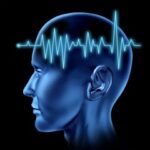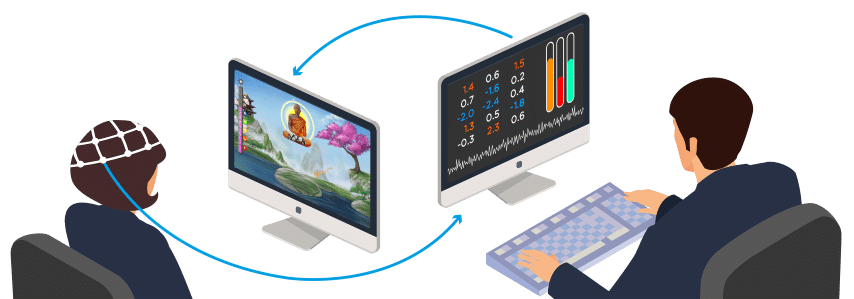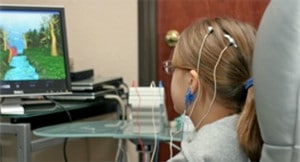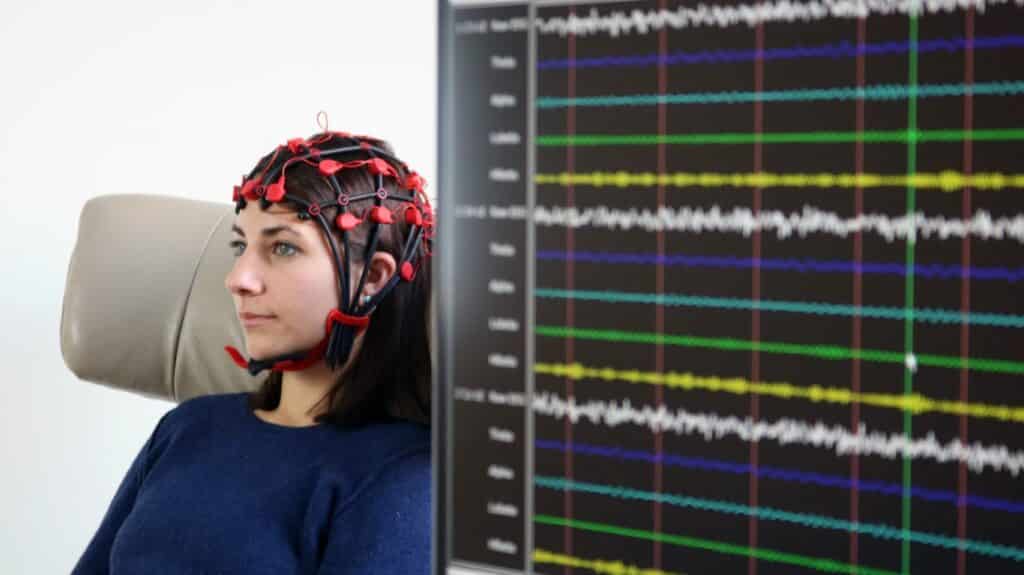
Neurofeedback was first popularized in the United States during the Space Race of the 1960s. NASA scientists used brain-biofeedback readings called EEG to measure brain wave activity in astronauts. Today, however, we use neurofeedback training to treat a variety of psychological and physiological issues. These include, for instance, ADHD, anxiety, depression, migraines, seizures, and sleep problems. If you are seeking treatment for ADHD, neurofeedback training with the Sachs Center in New York may be a great option for you!
Because it is a proven alternative for many types of medication, the Sachs Center offers Neurofeedback Training to children and adults who want to try a holistic approach to treatment.
Neurofeedback Training: How does it work?

Before our New York-based neurofeedback training, we collect data to construct an initial QEEG report, or “brain map”. This process may take the first few sessions. Then, based on the results of the QEEG report, we gently place sensors on your head in the corresponding areas where the brain produces overactive or underactive (abnormal) wave patterns. The electrode sensors are then connected to a computer. The client will feel no pain or discomfort.
The computer allows the clinician to read and enhance the EEG bands of brain wave activity in real-time, thus offering the ability to treat a variety of conditions in new and more detailed ways.
Through repeated neurofeedback training, the brain starts to produce the desired response with greater and greater ease. Over time, the brain literally rewires itself through the concept of brain plasticity. This process of neurological learning is similar to when someone learns to ride a bike, drive a car, or recognize a song. Patients typically require 20-40 sessions of training to achieve their goals, with twice-weekly sessions at 45 minutes each session. We offer all the tools you need for neurofeedback treatment in our New York office.
Neurofeedback for ADHD
Neurofeedback training has become an increasingly appealing alternative for clients who do not tolerate medication well, as well as those who would prefer to try a non-pharmaceutical approach to treating ADHD. This training is uniquely able to treat the neuronal dysregulation common in individuals with ADD and ADHD.

The evidence for neurofeedback training for ADHD continues to grow, with over 50 peer-reviewed journal articles published to date documenting its effectiveness in treating ADHD’s core symptoms. Neurofeedback has been found to be equivalent to stimulant medication in treating the symptoms of ADHD. Furthermore, the gains from Neurofeedback were shown to have been maintained after treatment had ended. For example, see the article below on the effectiveness of neurofeedback training for ADHD.
Meta-Analysis: Neurofeedback Drives Enduring ADHD Symptom Improvement
Results from 10 randomized, controlled trials found that neurofeedback significantly reduced inattention, hyperactivity, and impulsivity for 2 to 12 months after treatment ended for children with ADHD.
See full article…
Physician Endorsements for Neurofeedback Training
“EEG biofeedback [Neurofeedback] meets the American Academy of Child and Adolescent Psychiatry criteria for the clinical guideline (CG) for treatment of ADHD, seizure disorders, anxiety (OCD, GAD, PTSD, phobias), depression, reading disabilities, and addictive disorders. This suggests that EEG biofeedback should always be considered as an intervention for these disorders.”
– Child and Adolescent Psychiatric Clinics of North America
“EEG biofeedback [Neurofeedback], in the long term management of ADHD providing a sustained effect even without stimulant treatment… Parents interested in non-psychopharmacologic treatment can pursue the use of complementary and alternative therapy. The therapy most promising by recent clinical trials appears to be EEG biofeedback.”
Katie Campbell Daley, M.D. Department of Medicine, Children’s Hospital Boston and in the Department of Pediatrics of the Harvard Medical School.

More Endorsements for Neurofeedback Training…
“Among the newer approaches to managing ADD, the most exciting is a learning process called Neurofeedback. It empowers a person to shift the way he pays attention. After more than twenty-five years of research in university labs, Neurofeedback has become more widely available. This is a pleasing development, because Neurofeedback has no negative side effects.”
— William Sears, M.D. Author of “The A.D.D. Book.”
“It [Neurofeedback] improves seizures, depression, low self-esteem or congenital head injuries, and it helps the ‘craziness’ that often comes with these…Patients report they sleep better, they don’t have seizures, they are more in control, and that they get more work done. It helps with closed head injury patients. It helps with chronic neurologic disease, where there is no active injury but there are problems with normal functioning. We’ve had success with multiple sclerosis, with toxic encephalopathy (for example, chemical poisoning interfering with neurologic functioning), with chronic pain, migraines and fibromyalgia. And of course, we get very good results with ADD.”
– Jonathan Walker, M.D. Neurologist, Dallas, TX
“In my experience with EEG Biofeedback [Neurofeedback] and ADD, many people are able to improve their reading skills and decrease their need for medication. Also, EEG Biofeedback has helped to decrease impulsivity and aggressiveness. It is a powerful tool, in part because the patient becomes part of the treatment process by taking more control over his own physiological processes.”
– Daniel Amen, M.D. CEO and Medical Director, Amen Clinics, Inc. Author of “Change Your Brain, Change Your Life.”
Published Journal Articles Supporting Neurofeedback Training
According to a number of leading scientists in the country, neurofeedback training is most likely helpful in treating ADHD in children. For instance, the Journal of Attention Disorders published this:
Based on the results and methodologies of published studies, this review concludes that NF for pediatric ADHD can be currently considered as “efficacious.”Similarly, a study published in the Journal Of Clinical EEG Neuroscience concluded about neurofeedback training:
Neurofeedback treatment for ADHD can be considered “Efficacious and Specific” with a large ES for inattention and impulsivity and a medium ES for hyperactivity.Finally, as reported in the Applied Psychophysiology and Biofeedback journal:
Neurofeedback was efficient in improving some of the behavioral concomitants of ADHD in children whose parents favored a nonpharmacological treatment.To conclude, neurofeedback training can work wonders when it feels like nothing is working. Make an appointment with our Neurofeedback Training specialist in New York to learn how this alternative treatment can help with you or your loved one’s ADHD.
Contact Us
"*" indicates required fields